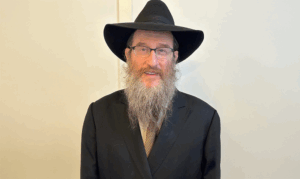For a long time I’ve wanted to lift up and honor some of the most important contributors to our society, and particularly these contributors right here in our own Fayette community. Well, now’s the time. God bless nurses! On a personal note, this year my own young wife celebrates her 40th consecutive year of being a working registered nurse. To her and to all nurses we extend our honor, appreciation, and gratitude.
Nurses in every area of medical service give far beyond what is officially expected of them and appears in their job descriptions. From their 24/7 scheduling to their technical skills to their bedside manner for patients of all ages, they are indeed “angels of mercy” for us in some of our most desperate and needy moments of life. Being a nurse is not just a job, but rather it is most definitely a “calling.”
I’ll bet we all have stories to tell about a particular nurse or group of nurses who helped us or our loved ones through a medical crisis or a time of physical or emotional uncertainty. I know many of you have even responded to the special care you received from your nurse or nurses by thanking them in writing and maybe even sending something special to the nurses’ station as a show of your thanks and appreciation. Good for you.
To further honor our nurses in this column today, I’ll share with you here a small portion of the “Code of Ethics for Nurses” as set forth by the American Nurses Association. I believe this will help remind us of their professionalism, their dedication, and their true gift of service to us. Please read this with specific care and attention to the depth and importance of each phrase. I believe you will find it, as I have, to be quite profound and insightful.
“Code of Ethics for Nurses: Provision 1. The nurse, in all professional relationships, practices nursing with compassion and respect for the inherent dignity, worth, and uniqueness of every individual, unrestricted by considerations of social or economic status, personal attributes, or the nature of health problems .
“1.1 Respect for human dignity. A fundamental principle that underlies all nursing practice is respect for the inherent worth, dignity, and human rights of every individual. Nurses take into account the needs and values of all persons in all professional relationships.
“1.2 Relationships to patients. The need for health care is universal, transcending all individual differences. The nurse establishes relationships and delivers nursing services with respect for human needs and values, and without prejudice. An individual’s lifestyle, value system and religious beliefs should be considered in planning health care with and for each patient. Such consideration does not suggest that the nurse necessarily agrees with or condones certain individual choices, but that the nurse respects the patient as a person.
“1.3 The nature of health problems. The nurse respects the worth, dignity and rights of all human beings irrespective of the nature of the health problem. The worth of the person is not affected by disease, disability, functional status, or proximity to death. This respect extends to all who require the services of the nurse for the promotion of health, the prevention of illness, the restoration of health, the alleviation of suffering, and the provision of supportive care to those who are dying.
The measures nurses take to care for the patient enable the patient to live with as much physical, emotional, social, and spiritual well-being as possible…
“1.4 The right to self-determination. Respect for human dignity requires the recognition of specific patient rights, particularly, the right of self-determination. Self-determination, also known as autonomy, is the philosophical basis for informed consent in health care. Patients have the moral and legal right to determine what will be done with their own person; to be given accurate, complete, and understandable information in a manner that facilitates an informed judgment; to be assisted with weighing the benefits, burdens, and available options in their treatment, including the choice of no treatment; to accept, refuse, or terminate treatment without deceit, undue influence, duress, coercion, or penalty; and to be given necessary support throughout the decision-making and treatment process.”
Quite profound. Right?
So, whether it’s the nurse who takes your vital signs at your doctor’s office, or the nurse who so patiently and skillfully cares for your little child at your pediatrician’s office, or the nurse who scrambles so quickly to help you or a loved one in the emergency room, or the nurse who so skillfully operates the high-tech machines and multiple I.V. lines for you or a loved one in one of the Intensive Care Units, or your extra-caring pre-op or post-op nurse, or any nurse in any medical service, please take a little time to do two things. One, say a prayer of thanks to God for calling these dear ones into their life of service. And two, simply say to the nurse with a sincere heart, “Thank you. And God bless you!”
Yes, to all nurses: “Thank you. And God bless you!”
[Kollmeyer is pastor of Prince of Peace Lutheran Church in Fayetteville. www.princeofpeacefayette.org]











Leave a Comment
You must be logged in to post a comment.